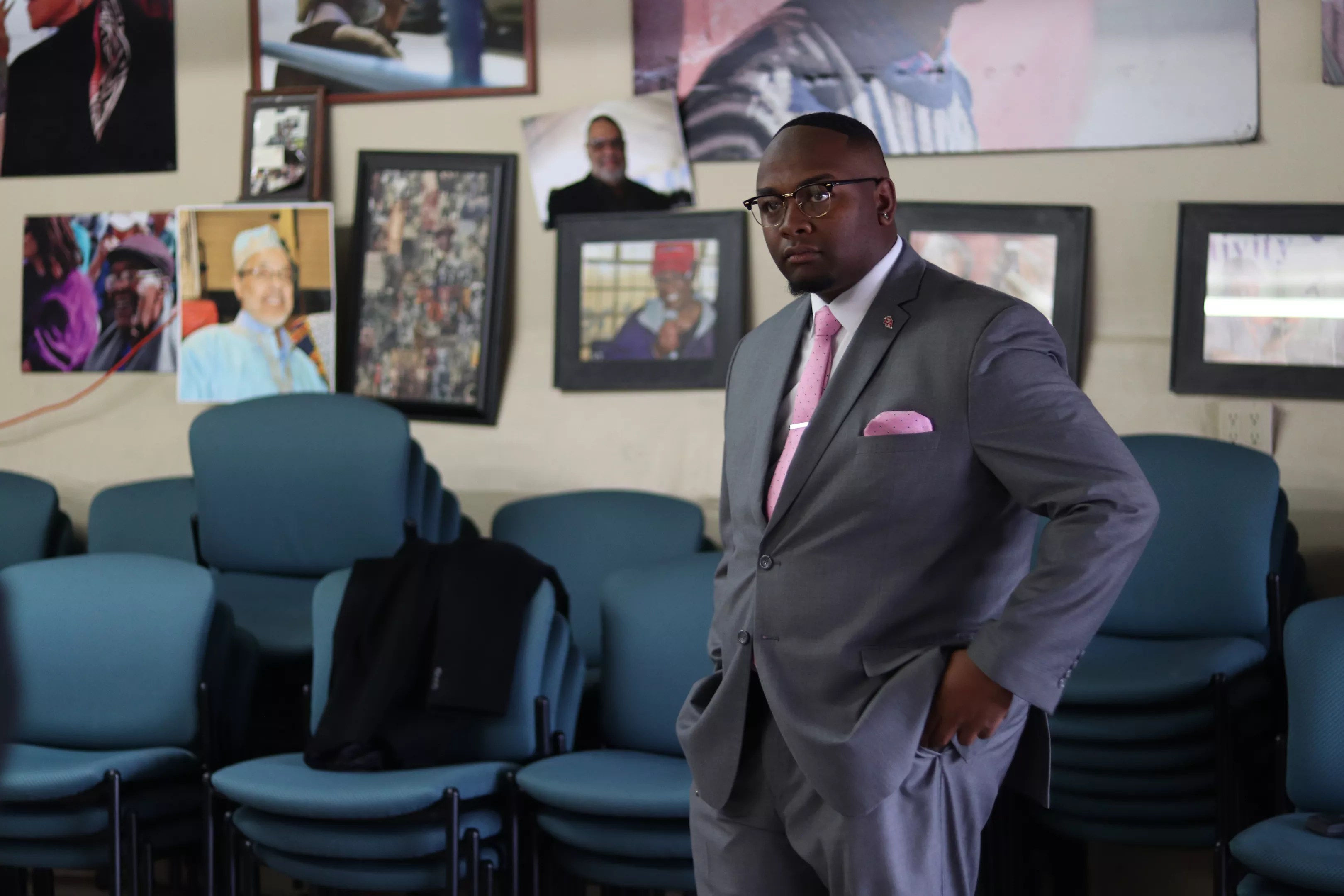
Benjamin Neufeld

Audio By Carbonatix
In the wake of the March 22 shooting at East High, Denver School Board Vice President Auon’tai Anderson – who is up for re-election in November after being voted into his at-large seat in 2019 at the age of 21 – said something he may wind up seriously regretting.
“Take your anger out on us at the ballot box,” Anderson told upset parents and community members looking for answers on school safety.
For the past several months, all eyes have been on Denver’s municipal election, with runoffs for mayor and the seats in four city council districts set for June 6. But just five months after that, another election will determine the makeup of the Denver Board of Education.
The school board includes two members who represent the district at-large and five members who each represent a distinct region; all of their terms are four years long, but staggered; only one at-large seat and two district seats are up this year. Members of the board make a modest $9,000 a year, but they have an outsized role in running Denver Public Schools. In addition to hiring and overseeing the superintendent, the board is responsible for budgeting, scheduling the DPS calendar, developing district policy and creating “a vision for the community’s schools,” according to the school board website.
It’s also created plenty of headlines over the past few years, as boardmembers attack each other in the press.
The board’s most recent squabbles have centered on the decision to reintroduce public school resource officers in DPS high schools, after the board banned them in June 2020 in the wake of protests inspired by the death of George Floyd at the hands of Minneapolis police officers. Anderson, in particular, has been stoking the fire with privately planned press conferences and public Twitter rants from which other members of the board have distanced themselves.
The disruption isn’t new. Back in 2020, Mayor Michael Hancock and former mayor Federico Peña blasted the board as “dysfunctional” and accused it of “undermining” then-Superintendent Susana Cordova, who had only been in the position since January 2019 when she was forced to resign at the end of 2020. Current superintendent Alex Marrero took over in July of 2021.
Hancock and Peña accused Anderson and other new boardmembers of mistreating Cordova during public board meetings and interfering in the “day-to-day management of the school system, rather than collaboratively establishing policies and direction for the district.”
Anderson called the allegations “absurd and false.”
One of the next big on-the-record beefs came in early 2022, when board president Xochitl Gaytán accused her VP and other boardmembers of bullying her behind the scenes while conducting official DPS business.
“They’ve attacked me verbally, they’ve attacked my leadership, and they’ve shown sexism and their misogynistic ways,” she told Westword at the time.
The bullying charges came with a slew of others from Gaytán, including an accusation that Anderson and Scott Esserman, who’d joined the board when Gaytán did in 2021, had attempted a coup to take away Gaytán’s position as president – or at least muzzle her powers in the role.
A month earlier, Anderson and Esserman had drawn the ire of Gaytán and DPS officials by attending a community meeting at Manual High School to make certain demands of employees who worked there. “That overstepped Dr. Marrero’s operational work,” Gaytán said to Westword. “They weren’t supposed to make demands of his employees and tell them what to do.”
Gaytán has suggested that the Anderson drama began when she was elected president in 2021.
“That didn’t come without controversy,” she told Westword last year. “Other people were looking to be voted in as president, and that’s when the verbal abuse began from two specific male boardmembers.”
“I do think it’s time for the board to reconsider leadership,” Anderson told Westword last November, stressing that he “would not be seeking the office of the presidency.”
The board VP announced his reelection campaign soon after, on November 30.
In a blog post, Anderson wrote at the time that he’d planned to run for an at-large seat on city council, but eventually decided there’s “more work that needs to be done” on the school board.
“My son Khalil will be a student in Denver Public Schools in the next few years, and I want to be certain that I have done all I can to ensure that he has the best education possible alongside his peers,” Anderson said.
Kwame Spearman, an East High grad who made a run for mayor this spring, recently revealed that he’s looking at a run for Anderson’s seat this November, with focuses on school safety and educational excellence.
Meanwhile, Anderson claims that he’s not campaigning right now. “Our community needs some time to heal before we have politicians coming to them and pandering to them for a vote,” he says.
Boardmembers Scott Baldermann’s and Lindsay’s terms also end this year.
Last year, Lindsay said she would not be interested in pursuing reelection. Requests for comment about her future plans were unsuccessful.
Baldermann has yet to announce a reelection campaign; he did not respond to requests for comment. But he spent big to win back in 2019; Chalkbeat reported that Baldermann spent $334,510 of his own money on his campaign. The two candidates he faced – Diana Romero Campbell and Radhika Nath – raised about $93,000 and $34,000, respectively, but each contributed less than $4,000 of their own money to their campaigns, according to Chalkbeat.
Romero Campbell went on to win the District 4 Denver City Council seat last week, with 56.64 percent of the vote.